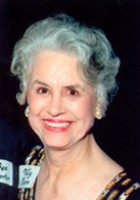Former owner
Columbus (MS) TV Cable Corporation
I am singing my song again that the closer the contact that he has with subscribers the better he is going to know how the cable systems can serve, and the better he can present their case on the Hill or at the FCC or in the state or in the city.
Pauline Dunn began as a small system operator in Columbus, MS and stayed that way throughout her career. Almost as soon as she took an active role in running her late husband’s system, she emerged as one of the cable industry’s busiest leaders and most effective spokespeople.
She helped build the Mississippi and Southern Cable associations, shunning most of the leadership positions offered her, and served on the board of the National Cable Television Association (NCTA). She was one of only two women during those years—along with attorney Yolanda G. Barco—elected to the Cable TV Pioneers.
Born in Kentucky and raised in West Virginia, Polly Long was working as a teacher when she met Morris Dunn, an executive from Union Carbide. She married him in 1940, and they moved to Florence, AL. For the next decade, she was active in community affairs and raised two children while Morris managed a knitting mill.
In 1953, while visiting in West Virginia, the Dunns heard about cable television. Like many cable pioneers, the Dunns were long on vision and short on cash, but Morris’ outgoing personality would make the difference. As Polly often said: “He never met a stranger.” Although they had almost no investment capital, the couple won the franchise to build Mississippi’s first cable system in Columbus. Their first service delivered two TV signals from Birmingham, AL.
Community service was an essential part of doing business in Polly Dunn’s mind and she frequently reminded the National Cable Television Association about the need for cable operators to do more of it. She mourned the day that the word “cable” replaced the word “community” in NCTA.
Dunn discovered early in her involvement with the NCTA that most of the association’s members had never seen the inside of the FCC’s offices. “I remember visiting the FCC,” she recalled. “They literally had never met a cable operator.” Dunn soon changed that. “She never brought a crowd and she never overstayed her visits,” recalls Bill Johnson, then chief of the Cable TV Bureau and today deputy chief of the Cable Services Bureau.
Dunn also helped organize the Southern CATV Association, now the Southern Cable Telecommunications Association. She was instrumental in forming that organization’s Tower Club, which presents annual awards to outstanding cable operators. Today, those accolades are known as the Dunn Awards, honoring both Polly and Morris.
By the 1980s, Dunn had become known as the “first lady of cable,” a compliment she would deftly deflect by replying: “you can call me anything, just not the old lady of cable.”
People listened to Dunn because she listened to them. She viewed an opponent not as an enemy but as someone absent of the facts. And she took the responsibility to educate everyone, from the humblest subscriber to the most irascible congressman, about what they should expect from her and what she expected from them. Her relations with policy makers included some tactics that might not be allowed today.

